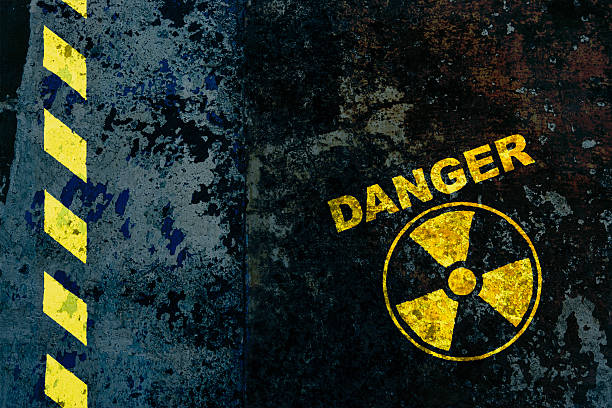New York, September 3 – A treaty banning any nuclear weapon test explosion or any other nuclear explosion has remained inactive since it was adopted by the U.N. General Assembly in 1996 due to failure by eight countries to ratify it. The assembly will discuss the issue during its annual session starting on September 16.
The eight countries are: China, Egypt, Iran, Israel and the United States, which have signed the treaty, and India, North Korea and Pakistan, which have not signed. They eight belong to a group of 44 countries that took part in negotiations of the Comprehensive Nuclear Test Ban Treaty (CTBT). They either possessed nuclear weapons, nuclear reactors or research reactors.
The treaty mandated that all 44 countries with nuclear capabilities must sign and ratify it, in addition to over 100 countries that have ratified, before the treaty can enter into force. The treaty bans all nuclear explosions, whether for military or peaceful purposes.
Efforts aimed at enforcing the CTBT have gained strength over the years and lately to counter Russia’s threats to use nuclear weapons in the war in Ukraine and North Korea’s attempts to build its nuclear arsenal. The treaty received even more support recently when the U.N. marked the International Day against Nuclear Tests with calls for the eight countries to sign, if they haven’t done so, and ratify the CTBT.
The U.N. General Assembly adopted the treaty on September 19,1996 in a resolution and opened it for signatures. The United Nations Treaty Collection said 186 countries signed and 178 ratified. Despite the high number of ratifications, the treaty will enter into force only after all 44 countries have ratified it.
Security Council permanent members – Of the five recognized nuclear powers, France, the United Kingdom and Russia signed and ratified while China and the United States signed but their legislatures have not yet ratified it. The five countries also hold a prominent political position in the U.N. system as permanent members of the U.N. Security Council.
On the International Day Against Nuclear Tests on August 29, U.N. Secretary-General Antonio Guterres called for global action to end nuclear testing and for the eight countries that have yet to ratify the treaty to do so.
“This year, we face an alarming rise in global mistrust and division. At a time in which nearly 13,000 nuclear weapons are stockpiled around the world — and countries are working to improve their accuracy, reach and destructive power — this is a recipe for annihilation.” Guterres said.
“A legally binding prohibition on nuclear tests is a fundamental step in our quest for a world free of nuclear weapons. The Comprehensive Nuclear-Test-Ban Treaty, though not yet in force, remains a powerful testament to humanity’s will to lift the shadow of nuclear annihilation from our world, once and for all.”
“In the name of all victims of nuclear testing, I call on all countries that have not yet ratified the Treaty to do so immediately, without conditions.”
Csaba Kőrösi, president of the current 77th session of the General Assembly, said on the International Day against Nuclear that there is little reason to celebrate while the CTBT remains in limbo.
“Heightened distrust, geopolitical competition and a growing number of armed conflicts have only increased the dangers in our world. Particularly if we consider the regular threats of resorting to a nuclear strike in the on-going war against Ukraine,” he said. He pointed out that global military spending reached a record US$2.2 trillion in 2022 and there are signs that nuclear stockpiles and capabilities are growing, contravening the nuclear non-proliferation treaty.
“We are closer than any other time in this century to global catastrophe,” he said, adding that it is a “serious loophole” that the CTBT has remained inactive 27 years after its adoption. He called on Annex 2 countries that have not signed and ratified the CTBT to do so.
Daryl G. Kimball, head of Arms Control Today, a Washington-based organization, said in a press release on the occasion of the International Day Against Nuclear Testing that the CTBT “is under threat due to inattention, diplomatic sclerosis, and worsening relations between nuclear-armed adversaries.”
“Although it has not entered into force, the CTBT is one of the most successful agreements in the long history of nuclear arms control and nonproliferation,” Kimball said. “Most of the nuclear-armed states that have not signed or not ratified the CTBT, including China, India, Israel, and Pakistan, are observing nuclear testing moratoria.”
But the CTBT and the de facto global nuclear testing moratorium cannot be taken for granted. “China, Russia, and the United States continue to engage in weapons-related activities at their former nuclear testing sites,” Kimball said. Meanwhile, “Russian officials acknowledge reports that they are considering the self-defeating option of ‘unratifying’ the CTBT,” he added.
“As diplomats from CTBT signatory states gather on Sept. 22 for the 13th conference on facilitating the CTBT’s entry into force, more energetic strategies must be considered not only to advance the treaty, but to strengthen the de facto norm against testing.”
Read the full text of the commentary Defending the De Facto Nuclear Test Ban. Further information: List of parties to the Comprehensive Nuclear-Test-Ban Treaty.
(By J. Tuyet Nguyen)
United Nations correspondent journalists – United Nations correspondent journalists – United Nations correspondent journalists – United Nations journalism articles – United Nations journalism articles – United Nations journalism articles – United Nations News – United Nations News – United Nations News

